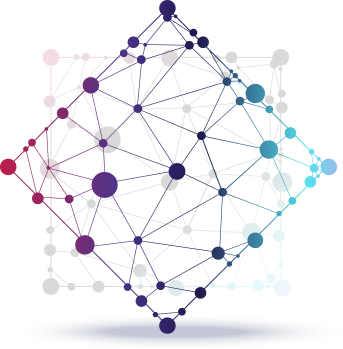- Resilience Blooms: Empowering Communities with today news on Renewable Energy Advancement & Healthcare System Reform.
- Harnessing Renewable Energy for a Sustainable Future
- Reforming the Healthcare System: Addressing Critical Needs
- Investing in Rural Healthcare Infrastructure
- The Role of Technology in Advancing Healthcare
- Financing Sustainable Development Goals in Nigeria
- Community Engagement and Empowerment
Resilience Blooms: Empowering Communities with today news on Renewable Energy Advancement & Healthcare System Reform.
The landscape of development in Nigeria is undergoing a significant transformation, fueled by increased investment in renewable energy sources and a concerted effort to reform the healthcare system. Access to reliable information regarding these advancements is crucial for citizens, communities, and investors alike. today news provides a vital conduit for disseminating this knowledge, empowering individuals and fostering a more informed populace. The intersection of sustainable energy and accessible healthcare represents a powerful catalyst for positive change, promoting economic growth and enhancing overall quality of life.
These shifts are not merely governmental initiatives, but rather collaborative efforts involving private sector participation, non-governmental organizations, and community-based programs. The effective communication of progress, challenges, and opportunities within these sectors is paramount to ensuring their continued success and widespread impact. Transparency and accessibility are key – ensuring that everyone has access to the insights they need to participate meaningfully in this evolving environment.
Harnessing Renewable Energy for a Sustainable Future
Nigeria’s commitment to diversifying its energy sources beyond fossil fuels is gaining momentum. Solar, wind, and hydro power projects are increasingly becoming commonplace, attracting both domestic and international investment. This transition is not only environmentally responsible but also creates new economic opportunities in manufacturing, installation, and maintenance. The adoption of renewable energy technologies reduces reliance on imported fuels, bolstering energy independence and security.
However, the widespread implementation of renewable energy faces several hurdles, including initial investment costs, infrastructure limitations, and the need for skilled labor. Addressing these challenges requires strategic planning, policy support, and targeted training programs. Continued investment in research and development is also essential to optimize energy efficiency and reduce costs.
| Solar | 160,000 | 0.5 |
| Wind | 10,000 | 0.1 |
| Hydro | 14,700 | 30 |
Reforming the Healthcare System: Addressing Critical Needs
Nigeria’s healthcare system has historically faced significant challenges, including inadequate infrastructure, a shortage of skilled medical professionals, and limited access to essential medicines. Recent reforms aim to address these issues through increased investment in healthcare facilities, improved training for healthcare workers, and the implementation of universal health coverage schemes. These changes are designed to improve the quality of care and ensure that all citizens have access to affordable and effective healthcare services.
The successful implementation of these reforms requires collaboration between the government, private healthcare providers, and international organizations. Focusing on preventative care, strengthening primary healthcare centers, and leveraging technology to improve healthcare delivery are crucial steps towards building a more resilient and equitable healthcare system.
Investing in Rural Healthcare Infrastructure
A significant disparity exists in healthcare access between urban and rural areas in Nigeria. Rural communities often lack basic healthcare facilities, forcing residents to travel long distances to receive even essential medical care. Investing in the construction and equipping of primary healthcare centers in rural areas is paramount to improving health outcomes. These centers should be staffed with trained medical personnel and equipped with essential medicines and diagnostic equipment. Furthermore, leveraging mobile healthcare clinics can deliver services directly to remote communities.
Telemedicine offers another promising avenue for expanding healthcare access in rural areas. Remote consultations, diagnostic support, and health education can be provided through digital technologies, bridging the geographical barriers that currently limit access to care. Investing in broadband infrastructure and providing training for healthcare workers in the use of telehealth technologies are essential for realizing the full potential of telemedicine.
Successfully delivering healthcare in rural settings also requires culturally sensitive approaches. Understanding local health beliefs and practices and involving community leaders in the planning and implementation of healthcare programs are critical to ensuring community acceptance and improving health outcomes.
The Role of Technology in Advancing Healthcare
Technology is rapidly transforming the healthcare landscape, offering innovative solutions to improve efficiency, accuracy, and accessibility. Electronic health records (EHRs) streamline patient data management, improve care coordination, and reduce medical errors. Mobile health (mHealth) applications provide patients with access to health information, appointment scheduling, and remote monitoring of chronic conditions. Artificial intelligence (AI) is being used to diagnose diseases, personalize treatment plans, and accelerate drug discovery.
However, the adoption of healthcare technologies in Nigeria faces challenges, including limited infrastructure, lack of digital literacy, and concerns about data privacy and security. Investing in digital infrastructure, providing training for healthcare professionals in the use of new technologies, and establishing robust data security protocols are essential to overcome these barriers.
- Electronic Health Records (EHRs) – Improve patient data management.
- Mobile Health (mHealth) Apps – Provide remote monitoring and information access.
- Artificial Intelligence (AI) – Aid in disease diagnosis and treatment.
Financing Sustainable Development Goals in Nigeria
Achieving the Sustainable Development Goals (SDGs) in Nigeria, particularly those related to healthcare and renewable energy, requires significant financial resources. Mobilizing both domestic and international funding is essential. Increasing government investment in these sectors, attracting private sector investment, and leveraging innovative financing mechanisms are key strategies. Public-private partnerships (PPPs) can leverage the expertise and resources of both the public and private sectors to accelerate the implementation of development projects.
Addressing corruption and improving financial transparency are also crucial to ensuring that funds are used effectively and efficiently. Strengthening accountability mechanisms and promoting good governance are essential for building trust and attracting investment.
- Increase government investment in renewable energy and healthcare.
- Attract private sector investment through incentives and favorable policies.
- Leverage innovative financing mechanisms, such as green bonds and impact investing.
- Implement Public-Private Partnerships (PPPs) for key projects.
Community Engagement and Empowerment
Sustainable development initiatives are most effective when they are driven by community needs and priorities. Engaging local communities in the planning, implementation, and monitoring of development projects is essential for ensuring their success. Empowering communities to participate in decision-making processes fosters ownership and accountability. Providing access to information, education, and training equips communities with the skills and knowledge they need to take control of their own development.
Supporting community-based organizations (CBOs) that are working on the ground can amplify their impact and reach. CBOs often have a deep understanding of local contexts and the needs of the communities they serve. Providing them with financial and technical assistance can strengthen their capacity to deliver effective programs.
| Renewable Energy | Community consultations, local ownership models | Increased adoption of renewable energy technologies, job creation |
| Healthcare | Community health worker programs, health education campaigns | Improved health outcomes, increased access to healthcare services |
By prioritizing community engagement and empowerment, Nigeria can unlock its full potential for sustainable development and build a more resilient and equitable future. Continuous learning and adaptation are vital in navigating the complexities of development, ensuring that interventions remain relevant and effective in addressing evolving needs.



